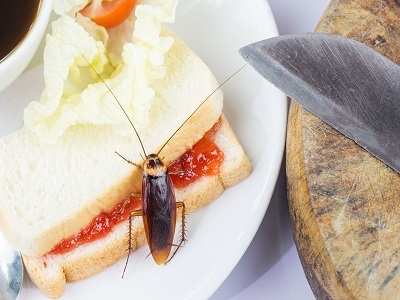
Pest infestations can cause clients to leave your hotel and never return. As pest infestations can ruin your reputation, hotels should make pest control and prevention a priority. You want to protect your reputation in this age of social media, where guests have the ability to share their hotel experiences. If you are unable to manage pests yourself, it is best to hire a professional pest control company.
Being proactive is the best way to manage or prevent pests in a hotel environment. You can implement this by creating a comprehensive and inclusive pest management policy, making pest prevention a priority and constantly monitoring the hotel for signs of infestation. It is important to ensure that pest control is a priority for everyone. This includes listening to guests, customers, and other visitors. This integrative approach can help you save a lot of pain and suffering. Pest control professionals will ensure that both protective and preventative measures are taken to combat the pest threat. Here are some of the most common pests that can be found in hotels, and how you can prevent them.
Bed Bugs
The most problematic pest in hotels is bed bugs. Because they are spread by hotel guests, they aren’t restricted to certain hotels. These tiny brown insects, which feed on blood from humans, can live for several months. They hide in cracks and crevices in hotel furniture and beds. Visitors can easily carry bedbugs in their luggage. This makes it easier for them to spread to other people’s homes.
How to Prevent Bedbugs
- To prevent bed bugs from infesting hotels, there are many options. These are just a few of the many options available to hotels.
- Hot water is best for cleaning curtains and hotel towels, as these are the most likely places they hide.
- Spreading can be reduced by good maintenance.
- You can use bedbug traps to detect them.
- The hotel staff conducts thorough inspections of the pest to ensure that it is not recurred.
- Ensure that all staff members are trained to deal with the bugs. A bedbug’s distinctive smell is so obvious that anyone who has been trained in handling them can spot a room infested.
- Fumigation is a preventative measure. Fumigation chemicals can cause irritation in pests. They will either stay away or hide if it is repeated often. At that point, they will be destroyed.
- Establishing a procedure to handle complaints about bedbugs from guests
Flies – House And Fruit Flies
There are many types of flies: fruit flies, houseflies, and rain flies. House flies thrive in damp places, and can be easily found in public toilets and dustbins. They have a natural tendency to associate dirt with them whenever they are mentioned. Houseflies, just like cockroaches can be a health risk because they will land on food, garbage and even animal feces. They can be noisy and annoying to people, making it difficult for them to eat in an area. Fruit flies, on the other hand, are attracted to sugary or fermenting liquids like vinegar, fruit juices and sticky expired liquids. They can also infect food by picking up microorganisms at different locations.
How to Prevent Fruit and House Flies
- Because they cannot access food or waste, it is important to observe food hygiene standards.
- Hygiene management is important when it comes to food handling or waste disposal.
Cockroaches
Cockroaches are not like bed bugs which feed on human blood. They thrive in places where there is food. They are most commonly found in hotels’ kitchens, bars, restaurants, public washrooms, and bar areas. They live in cracks and dark spaces, and they come out at night. Cockroaches can pose a danger to your health as they carry disease-causing pathogens and spread them as they move. Cockroaches also release allergens through their skin and droppings. Cross-contamination is also caused by Cockroaches, who eat contaminated material and spread it wherever they go.
How to Prevent Cockroaches
- Good hygiene practices are important when it comes to cleanliness. Clean up all food handling areas and dispose of any leftovers in a proper manner.
- It is important to properly manage waste, and to reserve a space for water disposal prior to collection by garbage collectors.
- You should never leave food out in the open. Remaining food should be refrigerated or kept in sealed containers.
- It is important to have a plan for an inspection that identifies them and how they can be removed from the hotel.
Rodents
Rodents and mice are the most destructive of all rodents, considering their potential for destruction. Rodents can destroy wires that connect electronics to hotel food stocks and food reserves in stores. They also destroy furniture and guests’ clothes. You can easily identify rodents by their distinctive sounds and droppings. Rodents love to be in areas where food is prepared.
How to Prevent Rodents
- They avoid food preparation areas that are clean and they cannot have leftovers so they look elsewhere.
- Proper waste management is crucial as rodents will rummage through piles of garbage looking for food.
- Rodents can be a threat if other methods fail to work. In these cases, poisons or traps may be used.
Contact us today to ensure a pest-free home/hotel. For more information, you can contact Zap Pest Control Inc.
Like our Facebook page for more great info about pest control services.
Zap Pest Control Inc.
2507 Forestbrook Rd Suite G
Myrtle Beach, SC 29588
843-654-1927
http://zappests.net/

No comments:
Post a Comment